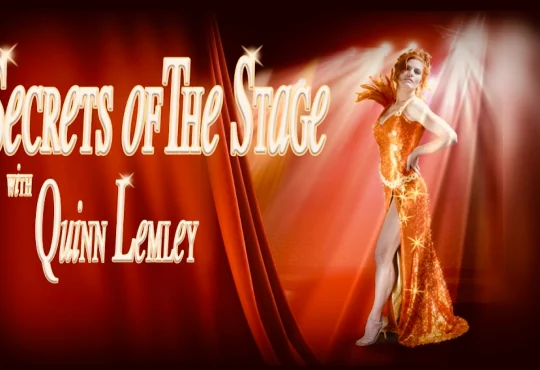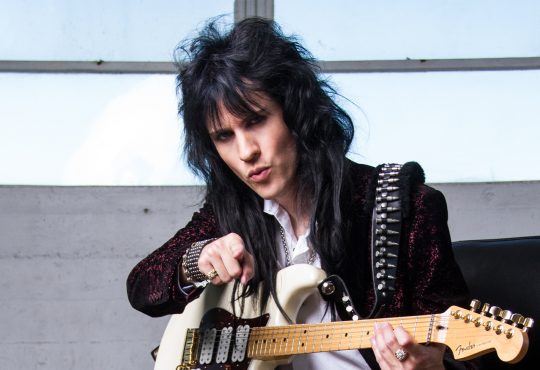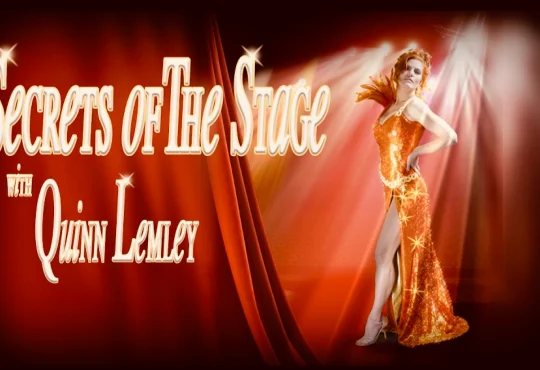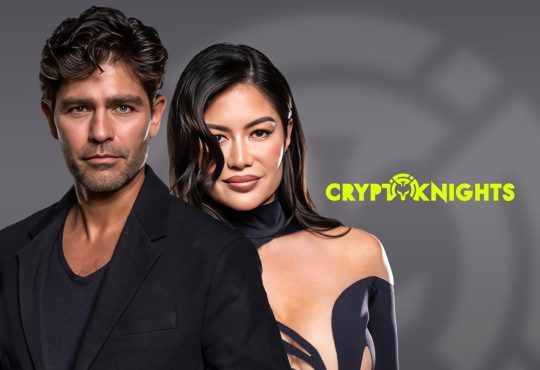The ‘Genius’ of Cynthia Erivo
When Cynthia Erivo was cast as Harriet Tubman in the 2019 biopic Harriet, the internet lit up with criticism. Erivo is English, the outcry went, how could she possibly do justice to a uniquely American hero? Her answer was a muscular, wrenching performance that earned her an Oscar nomination. Backlash surrounding her casting as another all-American icon, Aretha Franklin, in the National Geographic series Genius: Aretha (premiering March 21st), was barely a whisper. Perhaps people are finally learning not to underestimate Erivo. Or perhaps it’s just that anyone who’s heard her sing knows her voice is undeniable — even the Queen of Soul herself. During Erivo’s Tony-winning turn as Celie in The Color Purple on Broadway, Franklin visited backstage, singing a line of Erivo’s bring-the-house-down number “I’m Here” back to her in homage. When they met again at the 2016 Kennedy Center Honors, “she remembered me from the show,” Erivo says, still stunned. “She said, ‘You’re the girl that can sing, right?’ ”
Harriet Tubman is a cultural icon, but there’s no modern conception of what she was like as a person. With Aretha, you’re dealing with the shadow of a legend that is very recent. Everyone has this idea of who she is: the ultimate diva. Is that more challenging for you as an actor?
Yeah, because she had a couple sides to her. There was the side in front of interviewers — if she wasn’t quite comfortable with them, it was very, very reserved, superquiet. And then there’s the side that her family got to see, just fun and jokey. She had a really big sense of humor. [So] it’s trying to compartmentalize and remember when to dive into certain places. Also, she had such complex relationships with people that you want to make sure that you are doing her a service as well as those people. It’s less difficult, more daunting.
Was there one detail you came across while preparing that unlocked her for you?
Watching Amazing Grace was eye-opening for me, because it’s so strange — when she’s singing “Amazing Grace,” she looks like she’s going to take flight. It’s coming through her. And then she opens her eyes, and something disappears. I felt a sadness. Something left her for a second, and it only comes back when she’s in the music, singing.
The stage really was her home. Whenever she’s in a live concert, you hear her speaking to her audiences with sweetness and love. Always. Nothing other than that. With her family, she loved celebrations, birthdays, things like that. At those things, she’s the belle of the ball — very effusive and wants to share with everyone. But I think you find out more when she’s on stage. That’s where she lights up. The stage was where she got to tell the stories that she couldn’t say out loud, and her audience were the people she trusted them with them.
How did you reach a place where you could sing like her without doing a note-for-note imitation?
There was a lot of learning to do, because obviously I like to sing her songs, but I sing them my way. There are habits that she has that I don’t have. So I would listen over and over again, work through it bit by bit by bit. I had an amazing vocal coach who was very patient with me. There’s a song called “Never Grow Old” I really struggled with, because it’s free time — and Aretha does that a lot — where she’s not necessarily singing what would be notated on paper, she’s sort of singing around the notes. There’s no time signature. I had to sit with that for such a long time. But, you learn that there are things that she loves to do. My favorite thing about her is she loves making you wait for the next note. It’s leaning into the note and getting as much as you can out of that before you go to the next one.
At the same time that you were learning how to make yourself sound like Aretha, you were recording your first album, which will come out later this year. Was that disorienting?
Slightly, but because I was doing a lot of music, I think it lent itself to me being ready enough to do it. It’s taken a long time to get it done. There’s a song on it that’s almost seven years old. There’s a song that’s two years old. And then I sat and wrote songs on Zoom with people. I recorded a lot of it in Atlanta [where Aretha was filmed], in one of the bedrooms in the house I was staying in. I had an amazing producer in New York, and he would FaceTime me with his computer open, I would have my microphone and my computer, and we would do it like that.
Did the events of the last year — Covid, social-justice protests, political upheaval — influence what you wanted the album to be, emotionally or musically?
What I found was that there were songs I had written a while ago that felt perfect for now, which was a total happy accident. And then there are songs that I wrote specifically because of now, like one called “Sweet Sarah.” It feels like a country song, which I didn’t [intend], but that’s what happened. It’s about the individual going through this time. I realized that there are lots of pieces coming out about the whole world, but I kept thinking about that one person who is in the house alone, who finds energy from being out and seeing people, and now can’t do any of that. I wanted something to comfort that person, to let them know that just because you’re by yourself, it doesn’t mean that no one is thinking of you.
Is the album heavy on ballads? People love to hear you belt a sad song.
I do have ballads in there, and they’re very close to my heart. There’s a touch of everything. You might hear a fleck of Kate Bush, and you might hear a fleck of Dolly Parton. You might hear a fleck of Aretha. Overall it’s soul and R&B, because that’s just how I sing. But yeah, there’s a little bit of everything. Save for heavy metal. That’s not happening.
What have you taken away from this time period personally?
I think this year has taught everyone that life is fragile, and it is shorter than we think. And if we spend more time living and enjoying it, we won’t get to the end and regret anything. And for me, watching everything happening around me, I’m more sure now than I ever have been that I want to live my life with joy in it. I want to do the things that make me happy, and I want to spark joy in other people.
It’s [also] shifted the way we see each other. We get to have the serious conversations now. People who haven’t been able to say what is on their mind or in their heart, now they’re digging in and feeling the things that they haven’t wanted to feel before, and I’m so here for that, because I think a lot of us walk around in a daze, hiding the things that we were too scared to confront. This last year has taught people that if we don’t deal with it now, we never get the chance to deal with it.
Have you had white friends ask you questions around race, and has that been exhausting?
I have had a couple people ask, and my thing is, I’m willing to help if they are willing to listen. Genuinely listen. But more than anything I just wanted to be there for my black friends who were dealing with it too. Because I knew they could also be there for me, and they could understand. I know I’m not American, but when you’re in the skin, it doesn’t really matter where you are.
You’ve been living in the U.S. for a while now. Do you have plans to become an American citizen, or have we scared you off?
After this year, not being able to vote felt paralyzing. Waiting to see what happens, knowing that you’re a part of the community but not quite part of it enough that you can vote was really, really tough. So, I would [like to], so that I can be an active member of society here. But that will take some time. I’m working towards it. I want to do it in the right way.







